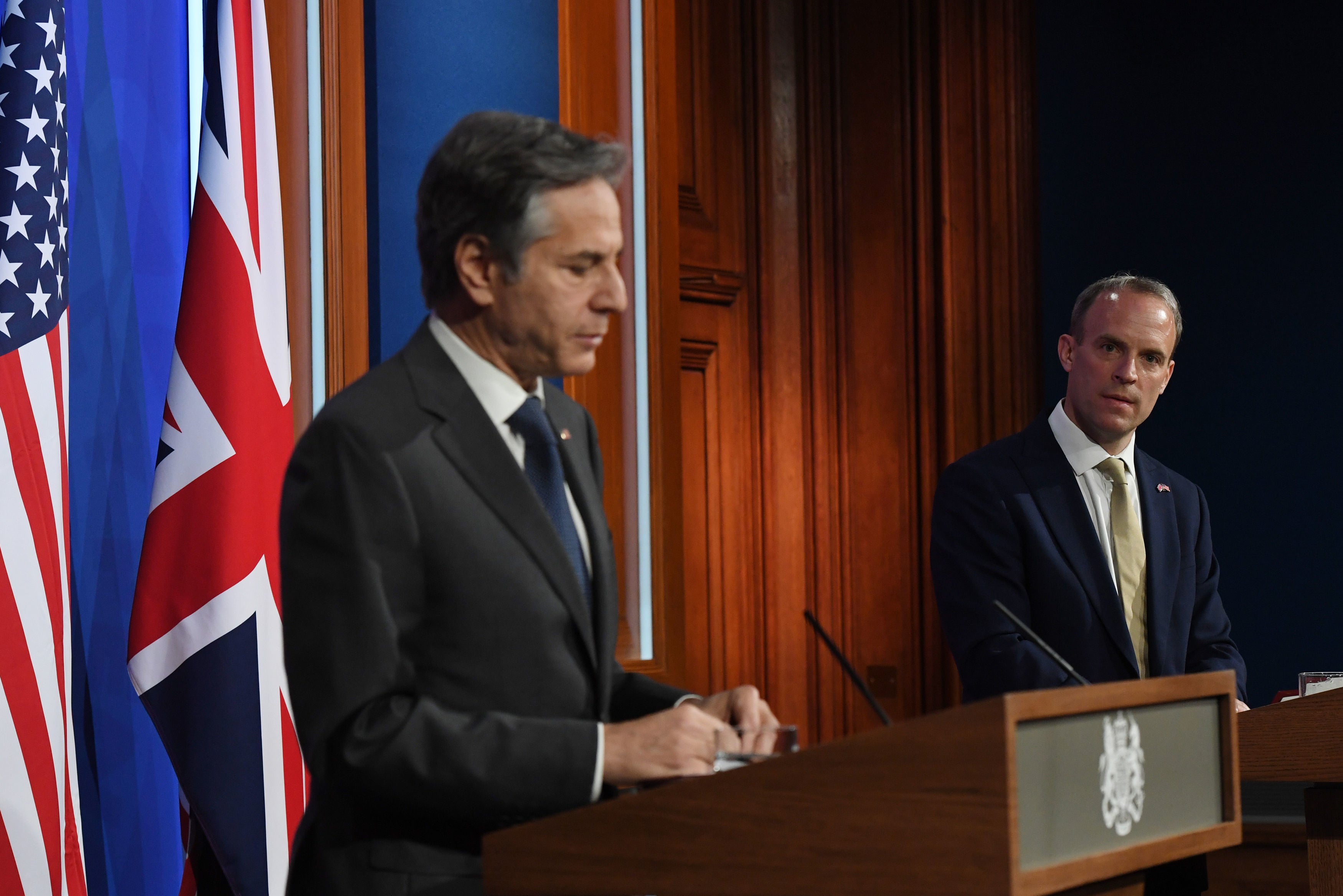US has ‘no closer ally’ than Britain but must protect Good Friday Agreement, says Blinken
1998 Good Friday Agreement ‘a historic achievement that we should protect’, says Blinken

Your support helps us to tell the story
From reproductive rights to climate change to Big Tech, The Independent is on the ground when the story is developing. Whether it's investigating the financials of Elon Musk's pro-Trump PAC or producing our latest documentary, 'The A Word', which shines a light on the American women fighting for reproductive rights, we know how important it is to parse out the facts from the messaging.
At such a critical moment in US history, we need reporters on the ground. Your donation allows us to keep sending journalists to speak to both sides of the story.
The Independent is trusted by Americans across the entire political spectrum. And unlike many other quality news outlets, we choose not to lock Americans out of our reporting and analysis with paywalls. We believe quality journalism should be available to everyone, paid for by those who can afford it.
Your support makes all the difference.The United States has “no closer ally, no closer partner” than Britain – but the Good Friday Agreement in Northern Ireland must be protected post-Brexit, president Joe Biden’s top diplomat said in a visit to London on Monday.
"We’re connected. It’s often said but always important to reaffirm,” secretary of state Antony Blinken told a Downing Street news conference.
“We’re connected by ties of friendship, family, history, shared values, and shared sacrifice.”
But in between warm talk of a special relationship, there was a warning that the 1998 peace deal covering terms of the border between the UK and Ireland must be upheld despite the problems faced since Brexit.
“The United States remains a steadfast supporter of a secure and prosperous Northern Ireland, in which all communities have a voice and can enjoy the gains of the hard-won peace,” Blinken said.
“Like several US presidents before him, President Biden has been unequivocal in his support for the Good Friday Agreement which was a historic achievement and one that we should protect.”
Mr Raab said that London and Washington stood “shoulder to shoulder” on issues of security, such as in Iran and Afghanistan.
Asked about traditional alliances, he said: “I do see the increasing demand and need for agile clusters of like-minded countries which share the same values and that want to protect the multilateral system and I think you can see that in the guests that we brought in to the G7 – South Korea, India, Australia and South Africa.
“So in that organic sense, I think we can see a shift towards that pattern of clusters of like-minded countries agile enough to work together.”
The press conference came as the UK prepared to host the first foreign ministers meeting for more than two years on Tuesday.
Raab is set to discuss “shared challenges and rising threats” with his G7 counterparts during face-to-face talks.
Mr Raab held face-to-face talks at Chevening House in Kent on Monday night with Japan’s minister of foreign affairs Toshimitsu Motegi, where they spoke of trade, security co-operation and climate change.
Australia, India, Japan, South Korea and South Africa have been invited as guests as the UK tries to deepen ties with the Indo-Pacific region.
Regular testing, size limits and other measures have been pledged to prevent the spread of Covid-19 during the discussions.
Join our commenting forum
Join thought-provoking conversations, follow other Independent readers and see their replies
Comments